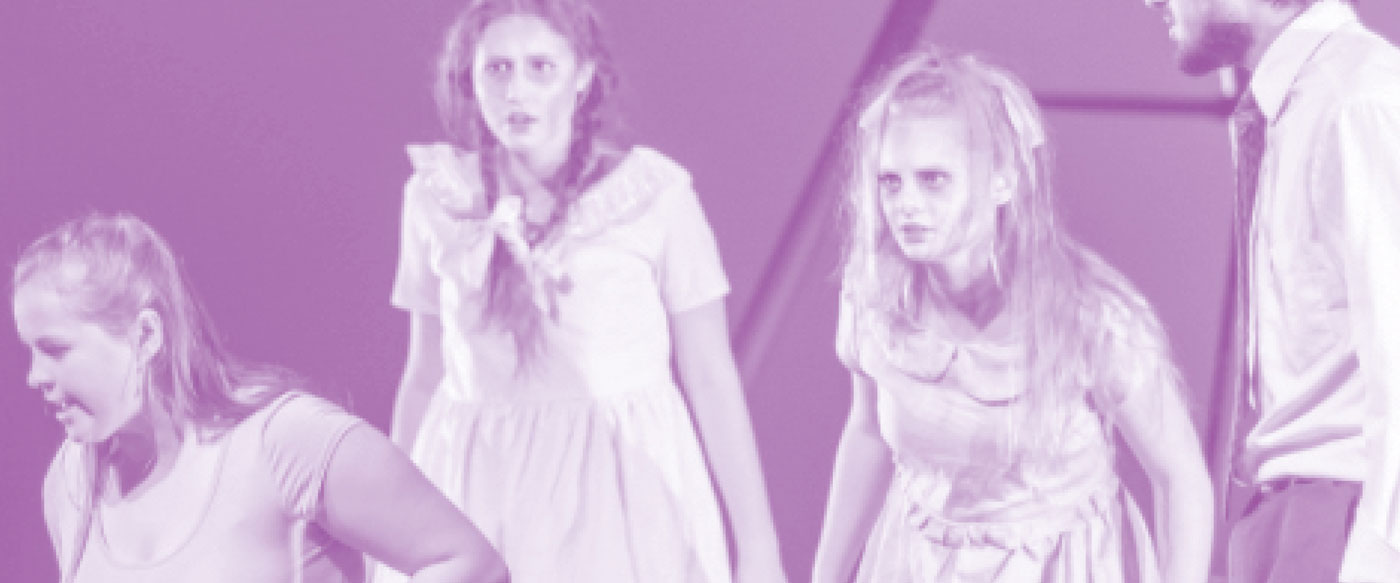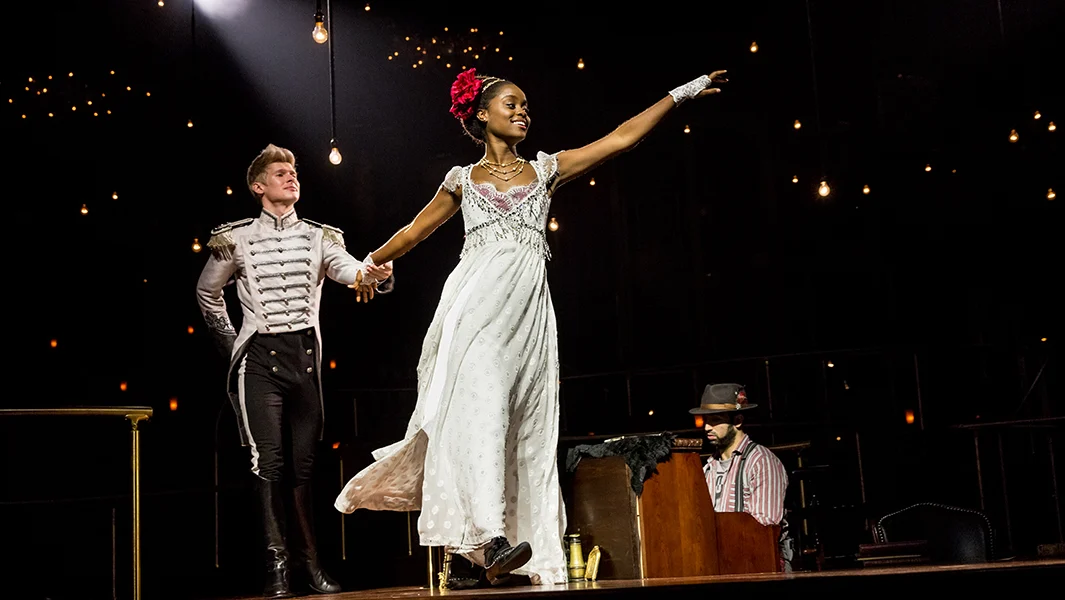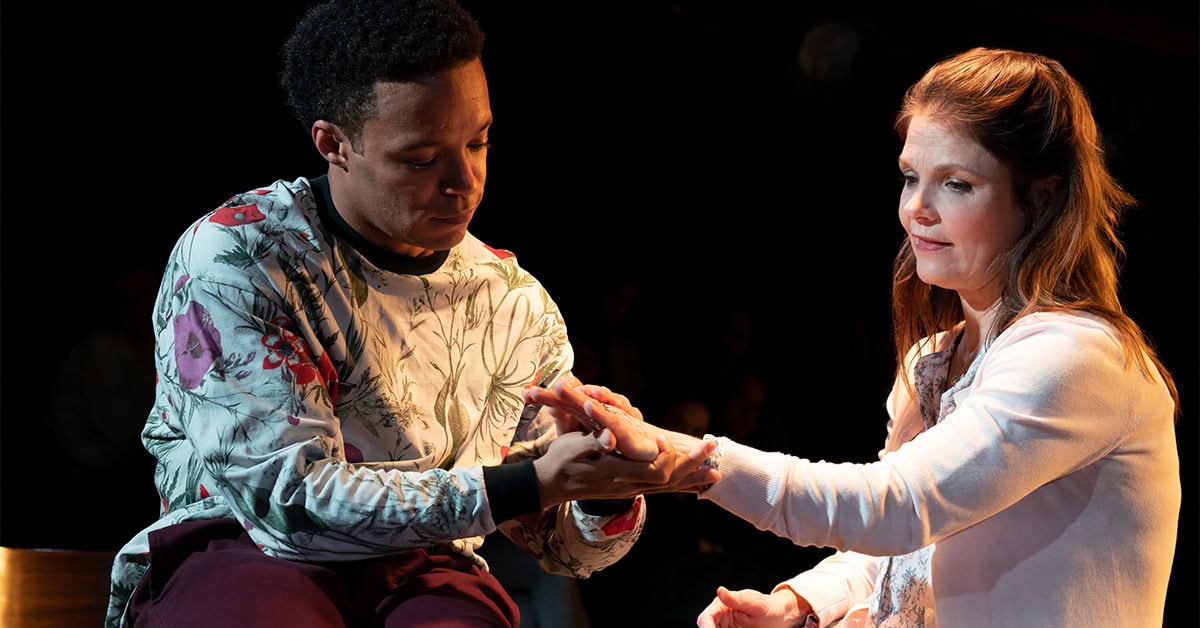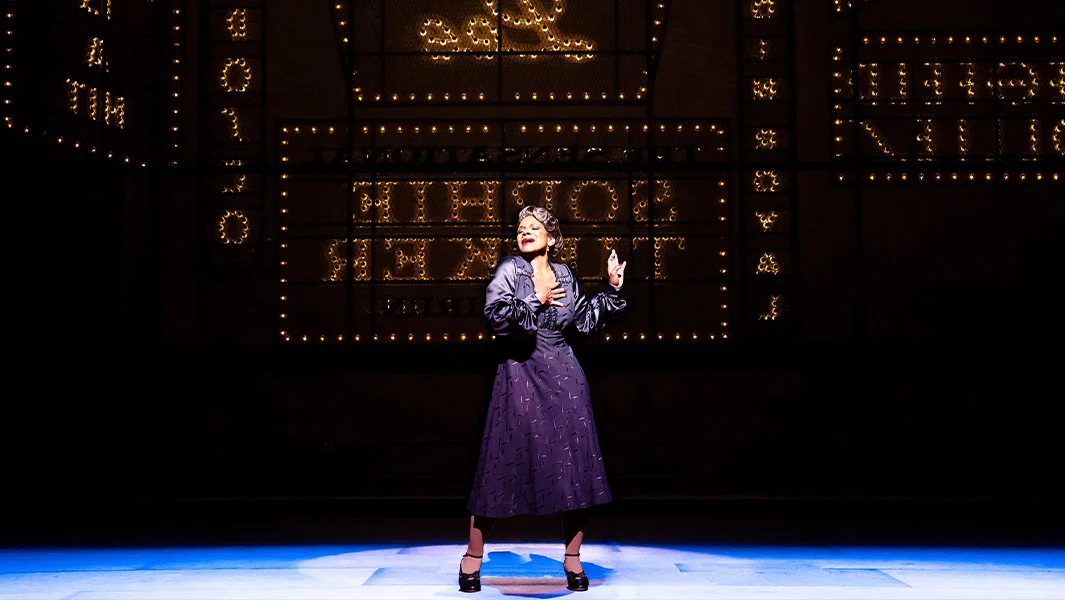
I first became aware of Sarah Ruhl’s work in the fall of 2006, when I saw Eurydice performed at the Yale Repertory Theater in New Haven. It was an astonishing production: I was mesmerized by the lightness of the language, the depth of the characters, the beauty of the set, and the extraordinary emotional resonance of the storytelling. When I walked out of the Yale Rep that evening, I was reminded of theatre’s transformative power.
Nine years later and some 40 miles away, I had the opportunity to direct a remarkable group of high school students in a production of the same play. In many ways, Eurydice is an ideal play for students: it is a challenging piece, but the characters have a youthful energy and an emotional intensity that young actors can connect to in truthful ways. As Breana Del Gatto (DHS ’16), who played Eurydice in our production, said, “Even though it’s a myth, the characters and their experiences carry over into our lives.”
The genius of Sarah Ruhl’s writing is to make us feel that we are entering a sacred story – where every word, and even every second of silence matters – but also to grant us enormous flexibility of imagination. At our first read-through of the script, one of the students commented that Ruhl’s stage directions – like the rest of her writing – are remarkably poetic and surprising, pointed and precise yet simultaneously open to interpretation. Many of our rehearsals returned to a discussion of the text – dialogue, monologue and stage directions- as our questions accumulated. What kind of Underworld do we find ourselves in? What does a stone look like, and how does a stone move? What does the music in Orpheus’ head sound like? How does one build a room made of string? What is Eurydice’s journey from one line, one monologue, one scene to the next? How do we make sense of a loss so enormous that it seems beyond words? What are the capabilities, and what are the limitations, of language?
Even as the text prompted difficult questions (many of which the students reflected on in a talkback following each performance), it also invited frequent discoveries. We decided to use a playground as the setting for our production, which seemed appropriate since Ruhl’s story, though an exploration of incomprehensible grief, is also filled with a sense of vitality and playfulness. The text constantly inspired students to experiment and explore new possibilities, including the creation of original music to complement the storytelling. “The musicians in the pit bring to light the music in Orpheus’s head,” explained student musician Drake Corrigan (DHS ’16), who played piano and trombone in the production. “It is a personification of Orpheus himself. Just as Orpheus changes during the show, the music changes with him.”
In an essay that appeared in the program for our production, student dramaturg Candice Wang (DHS ’17) reflected on the way music is embedded in the structure of Ruhl’s play: “The entire play echoes the organization of a symphony: the first movement, in which the bright exposition harkens to Orpheus and Eurydice’s day of frolicking on the beach, the second movement, when time slows to a crawl and Eurydice sinks with the groundwater to the Underworld, and the third movement, with its quickening pulse and sense of urgency, which leads to the play’s end. Ruhl also sprinkles pieces of music within the chronicle of the two lovers, because music and words are instruments in the act of remembrance.” As the students’ work as actors, musicians, dramaturgs, choreographers, set designers, sound designers, and makeup artists began to coalesce, the musical rhythms of Ruhl’s writing remained a unifying and harmonizing force.
The production, in the end, was quite different from the one I had seen at Yale Rep years earlier. Shortly before opening night, Carson Stewart (DHS ’16), who played Orpheus, reflected on the two-month transformation of the text from page to stage. “It’s still the show that Sarah Ruhl meant it to be,” he said, “but there will never be another production of Eurydice like this one. It evolved naturally to fit our talents and vision.”
I’m grateful to Sarah Ruhl for writing a play that empowers young artists to create and recreate, to play and learn and wonder, to make the strange familiar and the familiar strange again.
This article was part of our 2016 Samuel French Awards Series, honoring Sarah Ruhl, Keith Josef Adkins of The New Black Fest, and Michael Kooman & Christopher Dimond.
To purchase a copy of Eurydice click here, and to learn more about licensing a production, click here.

College Theatre: Picks for Your 2025/26 Season

Unlikely Friendships in Plays

